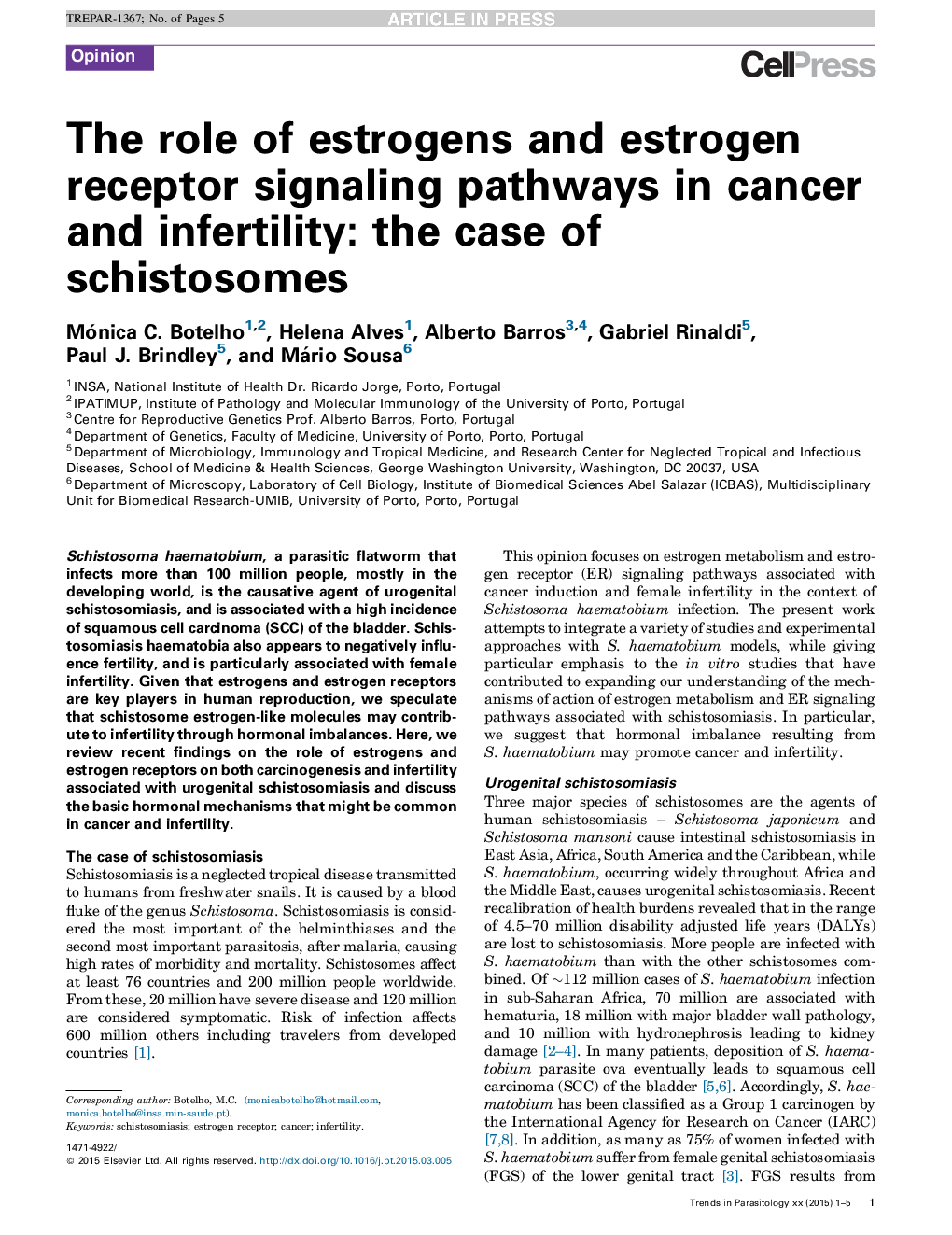| Article ID | Journal | Published Year | Pages | File Type |
|---|---|---|---|---|
| 6138125 | Trends in Parasitology | 2015 | 5 Pages |
Abstract
Schistosoma haematobium, a parasitic flatworm that infects more than 100 million people, mostly in the developing world, is the causative agent of urogenital schistosomiasis, and is associated with a high incidence of squamous cell carcinoma (SCC) of the bladder. Schistosomiasis haematobia also appears to negatively influence fertility, and is particularly associated with female infertility. Given that estrogens and estrogen receptors are key players in human reproduction, we speculate that schistosome estrogen-like molecules may contribute to infertility through hormonal imbalances. Here, we review recent findings on the role of estrogens and estrogen receptors on both carcinogenesis and infertility associated with urogenital schistosomiasis and discuss the basic hormonal mechanisms that might be common in cancer and infertility.
Related Topics
Life Sciences
Immunology and Microbiology
Parasitology
Authors
Mónica C. Botelho, Helena Alves, Alberto Barros, Gabriel Rinaldi, Paul J. Brindley, Mário Sousa,
